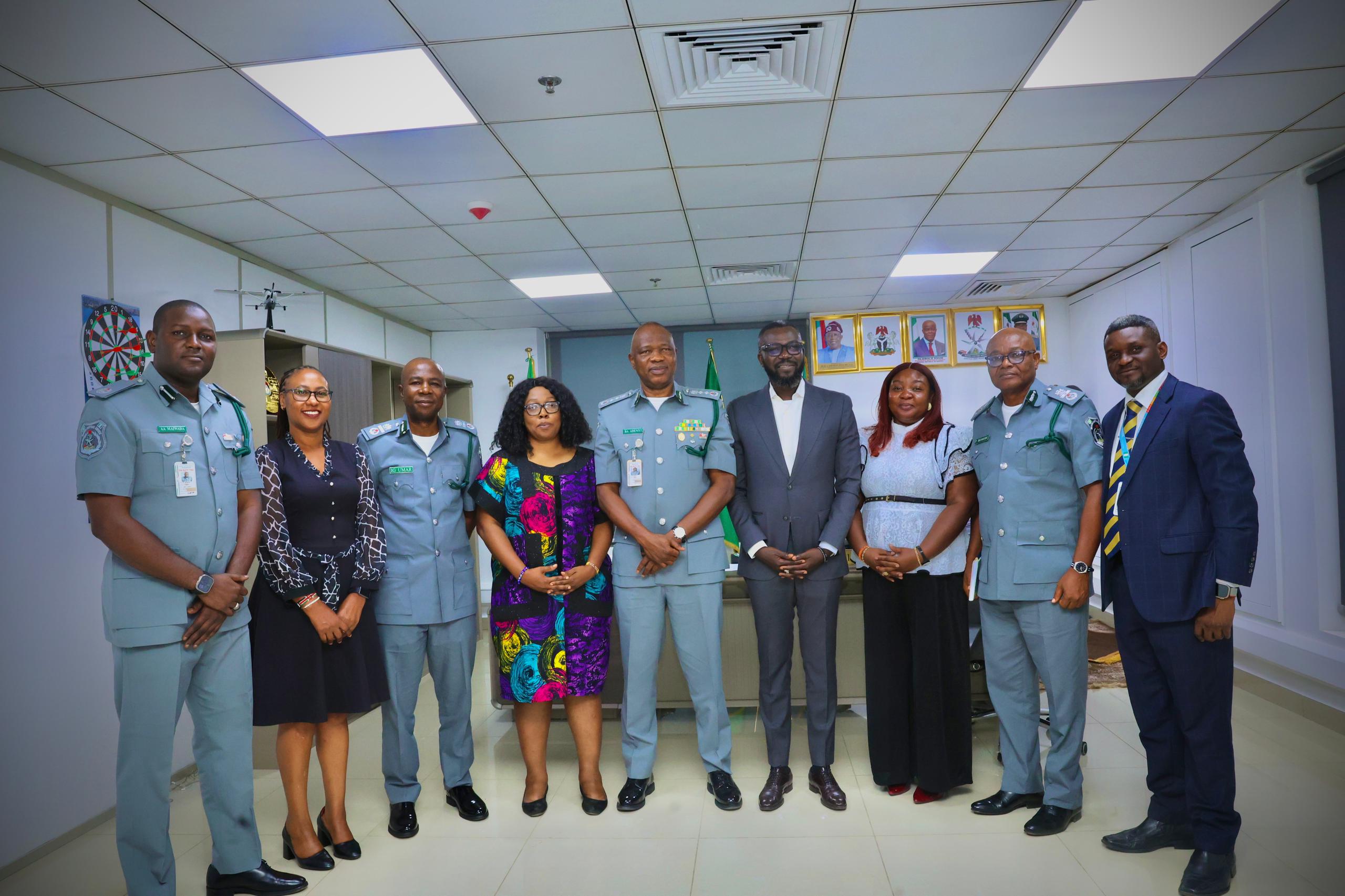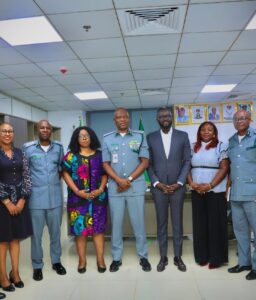

NCS, UNODC STRENGTHEN PARTNERSHIP TO COMBAT DRUG TRAFFICKING, ORGANIZED CRIMES

…As CGC Adeniyi Unveils Plans to Host WCO Regional Donor Conference
By Muhammad Bashir
The Comptroller-General of Customs (CGC) Bashir Adewale Adeniyi MFR has reaffirmed the Nigeria Customs Service’s (NCS) commitment to strengthening collaboration with the United Nations Office on Drugs and Crime (UNODC) in tackling drug trafficking and transnational organised crime.
CGC Adeniyi announced this on Tuesday, 4 February 2025, when he received a UNODC delegation led by its Country Representative, Cheikh Toure, at Customs Headquarters in Maitama, Abuja.
He emphasised Customs’ critical role in addressing drug-related crimes, describing them as a major threat to national security. “There are no bandits or terrorists who operate without drugs. Nigeria is no longer just a transit point for illicit substances—many criminals within the country are actively using them. Drug abuse among youths has also become a serious concern, with some even portraying it as fashionable,” Adeniyi stated.

He explained that, with approval from the National Security Adviser, the NCS had intensified efforts to ensure that confiscated drugs were destroyed immediately to prevent their re-entry into circulation. “So far, over 71 containers of illicit substances have been destroyed, and we intend to continue this effort nationwide,” he added.
Adeniyi also underscored the importance of intelligence-sharing in tackling drug smuggling, noting that UNODC’s global network provides valuable insight into trafficking routes and smuggling methods. He expressed interest in adopting models similar to the US-led Container Security Initiative, which enhances port screening and intelligence-sharing. However, he raised concerns about the environmental impact of burning seized drugs. He called for the introduction of incineration technology to ensure safer and more sustainable disposal.

CGC Adeniyi revealed that Nigeria would host a Regional Donor Conference for Customs Administrations in April 2025, bringing together 23 Customs administrations and development partners to discuss ways to support Customs operations. “We look forward to UNODC’s active participation, as the conference will highlight its contributions to Nigeria and the region while exploring new areas of cooperation,” he said.
CGC Adeniyi stated that the event will take place in Abuja and focus on improving Customs operations, enhancing intelligence-sharing and strengthening partnerships to address emerging security challenges.
UNODC Country Representative Cheikh Toure commended the NCS for its efforts in combating drug trafficking and assured continued support. “Customs officers are among the most highly trained professionals in Africa when it comes to detecting illegal activities, and they play a key role in the fight against transnational organised crime,” Toure said.


He noted that UNODC and the NCS had collaborated for over a decade in training, intelligence-sharing and environmental crime prevention. However, he stressed the need to move beyond training and implement intelligence-driven interventions at ports, seaports and airports.
Toure also emphasised the importance of regional collaboration, pointing out that criminal networks operate across multiple countries and can easily relocate when faced with enforcement measures. “A drug trafficker expelled from Ghana does not disappear into the Atlantic Ocean—they move to Côte d’Ivoire, Mali or Nigeria. This is why we must explore regional strategies to address these challenges collectively,” he observed.
He acknowledged Nigeria’s leadership role in Africa, not only because of its size and influence but also due to its efforts in helping other nations strengthen their enforcement capacities. He cited Nigeria’s support for The Gambia, Sierra Leone and Liberia in improving border security and combating organised crime.


Toure highlighted UNODC’s past contributions, including refurbishing and equipping Customs offices in Lagos, but stressed that material support alone was insufficient. “We must move beyond training and focus on introducing effective detection mechanisms at ports and border points. UNODC’s Container Control Programme and similar initiatives can be adapted to Nigeria’s needs,” he stated.
He reaffirmed UNODC’s willingness to explore new areas of collaboration with the NCS, particularly in intelligence-sharing, technology-driven screening methods and sustainable drug disposal mechanisms.


